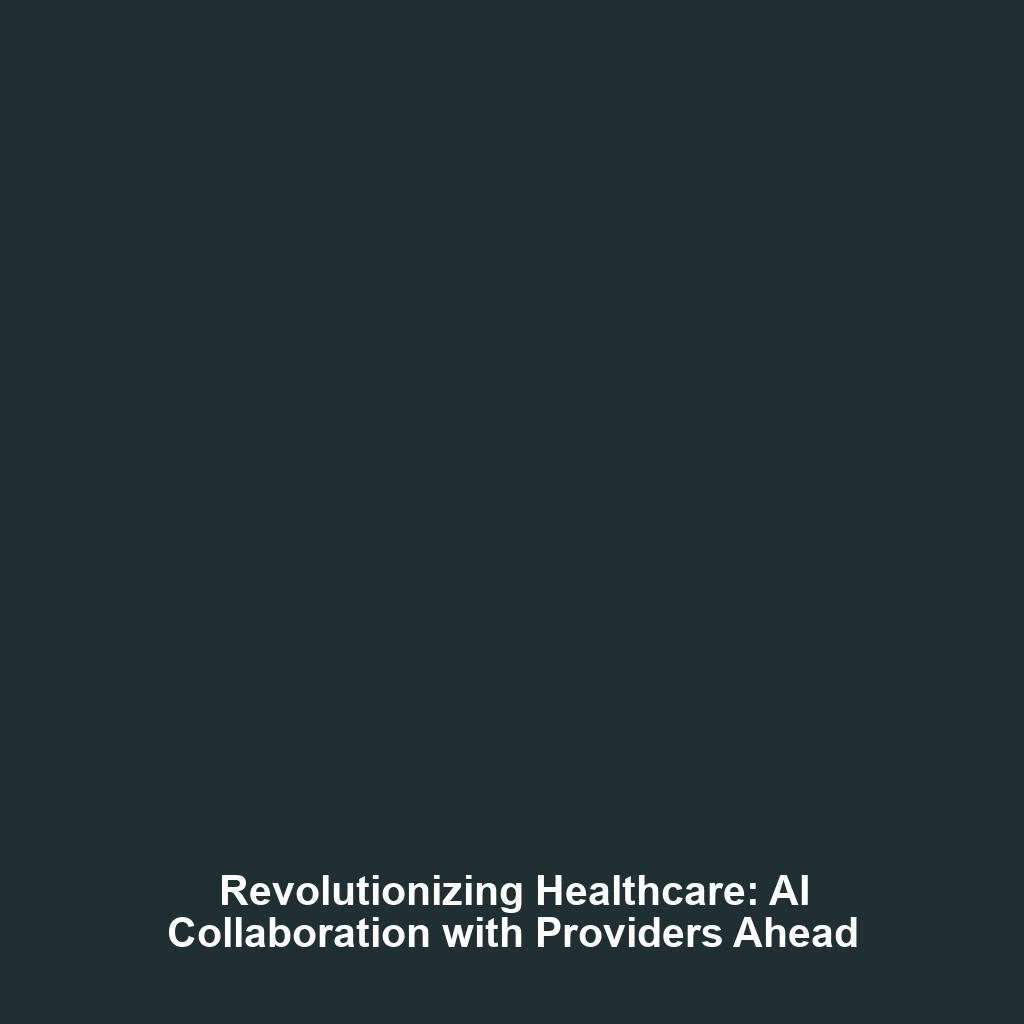The Future of Healthcare: A Collaboration between AI-Driven Systems and Healthcare Providers
The integration of artificial intelligence (AI) into healthcare marks a transformative era, where AI-driven systems and healthcare providers work together to enhance patient care and improve outcomes. This collaboration is pivotal for the future of healthcare as it promises to optimize operational efficiency, provide personalized treatment options, and leverage vast amounts of health data. Understanding the importance of such a partnership within the broader context of AI in healthcare is crucial for stakeholders at all levels.
Key Concepts of AI and Healthcare Collaboration
AI in healthcare encompasses a range of technologies and methodologies that facilitate improved decision-making, diagnostics, and treatment planning. Key concepts underpinning the future of healthcare through AI collaboration include:
- Data Analytics: Utilizing large health datasets to uncover patterns and enhance clinical decision-making.
- Predictive Modeling: Employing algorithms to forecast patient outcomes based on historical data.
- Personalized Medicine: Tailoring medical treatment to the individual characteristics of each patient, informed by AI algorithms.
Applications and Real-World Uses of AI in Healthcare
The collaboration between AI-driven systems and healthcare providers enables a myriad of applications, each improving patient care. Some notable examples include:
- Telemedicine: AI supports diagnosis and treatment recommendations remotely, particularly useful in rural areas.
- Robotic Surgery: Surgeons use AI-assisted robots to improve precision in minimally invasive procedures.
- Remote Patient Monitoring: AI systems analyze data from wearable devices to alert healthcare providers to potential health issues.
Current Challenges in AI-Healthcare Collaboration
Despite the promising outlook, several challenges hinder the effective implementation of AI in the healthcare sector:
- Data Privacy: Concerns over patient data security and compliance with regulations.
- Integration Issues: Difficulty in integrating AI systems with existing healthcare technologies.
- Bias in Algorithms: Potential biases in AI algorithms may yield unequal healthcare outcomes.
Future Research and Innovations in AI-Healthcare Dynamics
Looking ahead, ongoing research and innovations hold the promise of revolutionizing the healthcare landscape:
- Next-Gen AI Algorithms: Development of more sophisticated algorithms to enhance predictive accuracy.
- Interoperable Systems: Creating AI systems that seamlessly communicate with various healthcare technologies can provide comprehensive patient care.
- AI Ethics and Guidelines: Establishing ethical standards and guidelines for AI use in healthcare to mitigate risks and enhance patient trust.
Conclusion
In conclusion, the future of healthcare is set for revolutionary changes through a collaborative approach between AI-driven systems and healthcare providers. This partnership is essential for leveraging technology to improve patient care, but it also comes with challenges that need addressing. Stakeholders in healthcare must continue to advocate for responsible AI integration to maximize positive outcomes. For further insights into AI in healthcare, consider exploring related topics on advancements in medical technology and ethical AI practices.

Leave a Reply